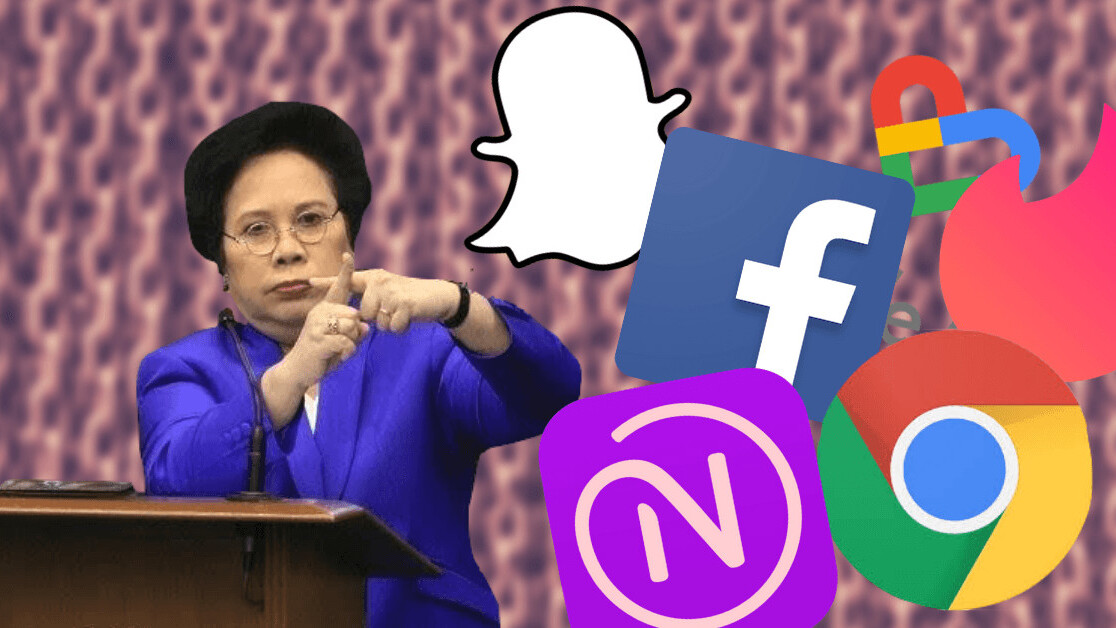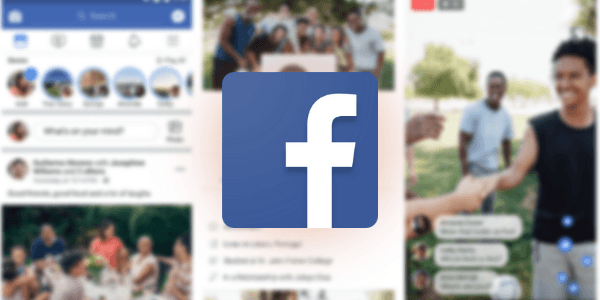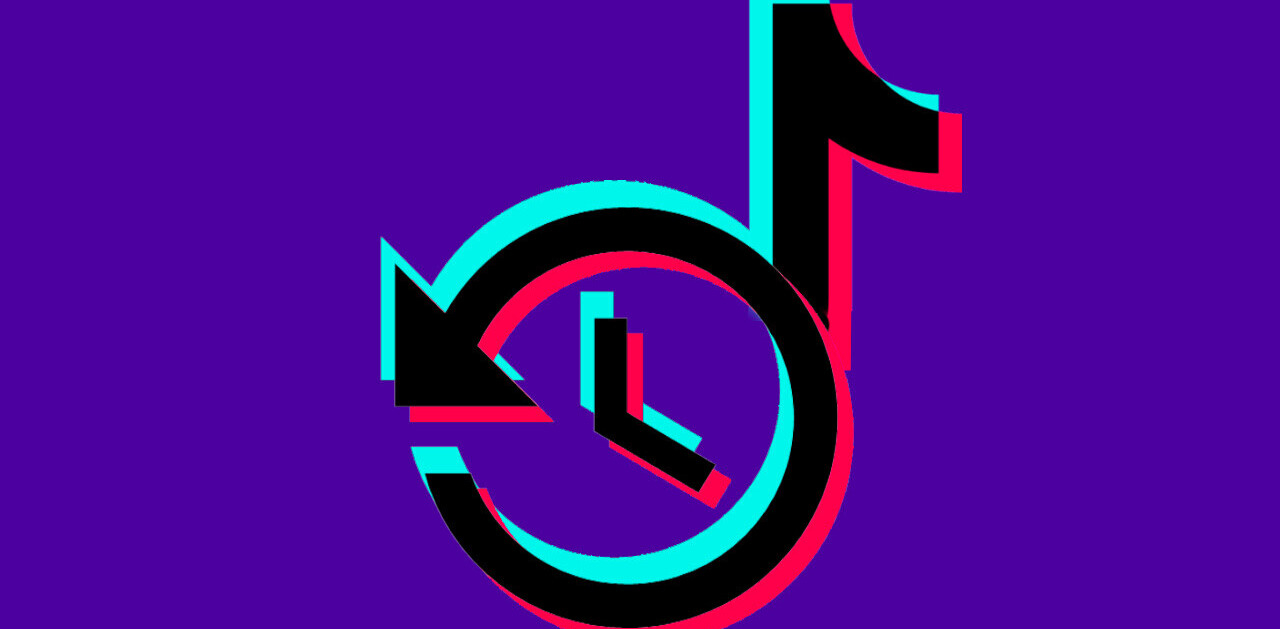
We all have that app on our phone we’ve been meaning to delete. You might be wasting too much time on it, its creators might be morally corrupt, or it simply hogs up too much space on your phone.
It’s a difficult process to take the final step and let it go, but anything’s possible with a little emotional support. That’s why our writers have gathered a list of the apps they’ve stopped using in 2018 — if we can do it, then you can too.
Google Chrome

I see myself as a fairly conscious consumer, both online and offline, but I’m still throwing my data at the all-knowing tech giant. That’s why I was proud when I finally stopped using Chrome after Mozilla’s Firefox Quantum came out earlier this year.
Although it doesn’t necessarily score the highest on all benchmarks, Firefox is a great browser, especially for users concerned with security and privacy. I’m also happy with privacy-focused plugins like Mozilla’s Facebook Container extension — I might as well try to hide from Zuck while avoiding Google.
Unfortunately I still use services like Google Maps, Gmail, and Google Search all the time, so I’m far from obtaining any real indepence from the tech giant — but at least I’m one step closer.
CityMapper

Since April, I’ve been in Amsterdam and life here is a little bit different. Instead of jamming myself into a crowded tube that stinks of stale sweat, I hop on a rickety bike and cycle about in the wind and hail until my body is numb. This is how people here get around. While CityMapper is amazing at telling me which of a multitude of routes is best, it’s nowhere near as efficient as Google Maps when it comes to cycling directions.
Listen CityMapper, it’s not you, it’s me. We’ve had one hell of a time together, but I’ve changed and, well, I need something different. Well, until next time I visit London.
Google Fit

While I never set firm fitness goals, Google Fit helped me to better balance out my exercise routine. For example, I’m no stranger to spending a full Sunday indoors — it’s raining, I’m hungover, or a combination of both — resulting in an unrelenting zero active minutes that day. Which is fine, as long as I don’s skip any workouts the following week. Guiltfree laziness ensued.
Unfortunately, Google Fit (now just called Fit) updated the app in August. The most noticeable — and annoying — change is that the app now counts “heart points” and “active points.” These metrics mean nothing to me, nor do the “magic numbers” the app keeps mentioning. “You’ve hit the magic number of 150 points!” Wait, how? What’s so magic about it? The overly upbeat notifications are another turn-off: I don’t need a badge for every ten-minute bike ride to work.
Sure, I could do some research to better understand Fit’s new metrics. But why should I have to? A fitness-tracking app should encourage us to spend less time on our phones, not more trying to figure out heart points and magical numbers.
Windows

I’m not particularly pro-Windows, but it’s the operating system that allowed me to satisfy every computer-based craving I have ever had, and then some. Being overly curious as a child I was often taking things to pieces, usually computers, and modding or rebuilding them, and this simply isn’t something you can do with Macs. I was often perplexed by their cost, and what the allure is, the value of a Mac never really seemed to exceed the sum of its parts, for me at least. So for the most part I avoided them. Until now…
I started working at TNW only a few months ago, and all of those months have been spent working on a Mac. It’s been a surprisingly delightful affair too. Many of my arguments for not buying into the Mac ecosystem still stand, but I get why people waste their money on these things. It’s stable, it works, and, it’s refreshingly different.
Now, as I’m a writer, I don’t demand a huge amount from the MacOS that I spend my days with, but it performs faultlessly all the same. Sure, not everything is where I expect it to be, and I sometimes get frustrated at the lack of control but that’s because I want to go tinkering. That said, the lack of control means that I spend next to no time fixing pesky little computer issues that otherwise should just work, because it just works as it needs to.
I think I will happily carry on using MacOS for work, and it’s made me more understanding of why people are so protective over Mac; but it’s not enough to tear me away from Windows forever… How else am I going to be able to Rush B on a Friday night with all my buddies?
Facebook

The social networking giant’s app is a big mess, both on iOS and Android, which hardly serves any purpose. It takes a lot of space, and it’s certainly a battery hogger. If I want to chat with friends, I use the standalone app for messenger.
I find the content Facebook shows on my news feed kind of boring. Facebook often posts viral videos from random channels I’ve never liked on its app. I’d rather see the meme pages I’ve liked on desktop.
And if you seriously can’t stop using Facebook, just use their mobile site. That way, you’re less likely to open the app just out of habit.
As a tech reporter I get to groan on Facebook on almost a daily basis. I just want to keep my battery and my mind happy for a bit.
Tinder

Dating apps fucking suck. You know it, I know it, everybody knows it.
Everyone has a friend (or a friend of a friend) that LOVES them, has five dates a week with perfect candidates, and refuses to settle because dating apps are just so god damn fun, but those are the exception, not the rule. I would even go so far as to call those people suspect.
Swiping on Tinder takes forever, you constantly end up with matches your drunk ass swiped right on but your sober self would never date, the conversations are always awkward, I hate it I hate it I hate it. I’m no UX / Dating guru, but I’m sure there’s a way this whole song and dance can be made into something less excruciating.
Sure, getting a match is fun and all it takes is one successful date to turn yourself into an ex-Tinder user, but the process of getting there is just too much.
Natural Cycles

Since, if not all, the responsibility for contraception is on women, I’ve tried my fair share of contraception and never been happy with any so Natural Cycles sounded like a painless dream.
I first spotted Natural Cycles with its pretty sponsored posts on social media. It eventually chipped away at my logical thinking and I started to consider taking the ‘natural route’ of contraception.
It didn’t take long for me to lose trust in Natural Cycles after it was blamed for 37 unwanted pregnancies earlier this year. But asides from this, the app never got to know my body — contraception isn’t and shouldn’t be a one-size fits all.
But naturally tracking your fertility isn’t a new phenomenon, Natural Cycles simply glamorized the risky method through its aggressive influencer program and the aesthetically pleasing app.
Snapchat

Georgina Ustik picks: Ugh, fuck this app. Snapchat has been consistently messing up since its redesign last year. Following a string of scandals, it hasn’t recovered since. Also, Instagram has copied Snapchat’s only function, and did it, well, better.
I used to use Snapchat all the time to stay in touch with friends or use the dog filter or watch celebrity stories (Spencer Pratt was the best by far). I still keep the app on my phone for when my cousins or aunts and uncles send me a snap, but besides for that, I have no use for it. Snapchat’s become irrelevant.
Which apps did you let go this year? Let us know in the comments.
Get the TNW newsletter
Get the most important tech news in your inbox each week.




